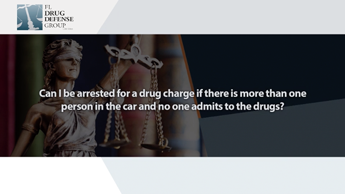Alford Pleas: When Does Pleading Guilty Not Require You To Admit Wrongdoing?

Why do so many defendants plead guilty? When you are not facing criminal charges, and therefore not facing a years-long or decades-long prison sentence, it is easy to say that you would never confess to a crime you did not commit, or even a crime you did commit. Things look very different when you see the word “defendant” next to your name. The reasons why so many defendants plead guilty are complex. Many get bullied into confessing to crimes they did not commit; prosecutors and overworked public defenders convince them that it is pointless to fight their cases. Some have little faith in jurors to return a just verdict. Some are able to get plea deals; accepting probation and a conviction on one’s record seems less scary than the risk of being found guilty at trial and going to prison. One kind of plea deal, known as an Alford plea, enables you to get a reduced sentence without even acknowledging that you committed the crime of which you are accused. If you are facing felony drug charges, such as for distribution or possession with intent to deliver, your Central Florida drug crimes defense lawyer will help you understand all your options and choose the best one.
How Alford Pleas Work
In 1970, the U.S. Supreme Court ruled that a defendant could enter a guilty plea without admitting that he believed that he was guilty of the charges beyond a reasonable doubt; the Alford plea is named after the defendant in this case. Florida courts have been accepting Alford pleas since 1991. Nationwide, five percent of federal cases and 17 percent of state cases end with Alford pleas; Florida is one of 47 states where the state courts accept Alford pleas.
If you enter an Alford plea, you are declaring that you maintain your innocence, or at least, you believe that there is reasonable doubt about your guilt. You also accept that the evidence against you is strong enough that a jury would likely convict you at trial, and therefore you accept the plea deal and the sentence that goes with it. Alford pleas involve sentence reductions similar to those of other plea deals.
What About Not Admitting Guilt, Not Accepting a Punishment, and Not Going to Trial?
In some drug cases, especially first offense charges for drug possession, there is an even better option that Alford pleas and other plea deals. Florida offers eligible defendants pretrial diversion programs through drug court. If you complete the drug court program, which almost always involves addiction treatment, you can get the charges dropped, and you can walk away with no criminal record.
Let Us Help You Today
A Florida drug offense lawyer can help you decide whether to plead guilty to your drug charges, go to trial, or choose some other option. Contact FL Drug Defense Group for help today.
Resource:
lawsuit.org/charges-and-pleas-in-floridas-courts/#:~:text=Out%20of%20every%20100%20criminal,sometimes%20also%20dismissed%20or%20transferred.&text=Out%20of%20every%20100%20criminal,sometimes%20also%20dismissed%20or%20transferred







